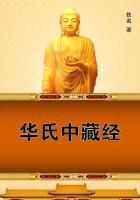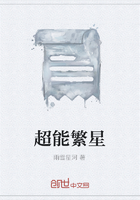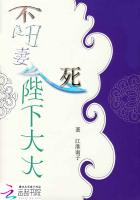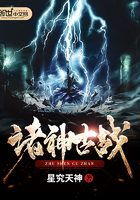One of the problems in all work is to place things in their right order, in the order of origin and importance. This difficulty is almost insoluble when one studies the character of man. As we see him in operation, the synthesis is so complete that we can hardly discern the component parts. Inheritance, social pressure, excitement, interest, love, hate, self-interest, duty and obligation, --these are not unitary in the least and there is constantly a false dissection to be made, an artefact, in order that clearness in presentation may be obtained.
We see men as discharging energy in work and play, in the activities that help or hurt themselves and the race. They obtain that energy from the world without, from the sunshine, the air, the plants and the animals; it is built up in their bodies, it is discharged either because some inner tension builds up a desire or because some outer stimulus, environmental or social, directs it. Though we have no way of measuring one man's energy against another, we say, perhaps erroneously, "He is very energetic," or "He is not"; "He is tireless," or "He breaks down easily." As students of character, we must take this question of the energies of men into account as integral in our study.
Granting that the human being takes in energy as food and drink and builds it up into dischargeable tissues, we are not further concerned with the details of its physiology. How does the feeling of energy arise, what increases the energy discharge and what blocks, inhibits or lowers it? For from day to day, from hour to hour, we are conscious either of a desire to be active, a feeling of capacity or the reverse. We depend on that feeling of capacity to guide us, and though it is organic, it has its mysterious disappearances and marvelous reenforcements.
It arises, so we assume, from the visceral-neuronic activities, subconsciously, in the sense we have used that word. It therefore fluctuates with health, with fatigue, with the years. We marvel at the energy of childhood and youth, and the deepest sadness we have is the depletion of energy-feeling in old age. We love energy in ourselves and we yield admiration, willing or unwilling, to its display in others. The Hero, the leader, is always energetic. In our times, in America, we demand "pep," action and energy-display as an essential in our play and in our work, and we worship quite too frankly where all men have always worshiped.
What besides the organic activity, besides health and well-being, excites the feeling of energy and what depresses it?
1. This feeling is excited by the society of others, by the herd-feeling, and depressed by long-continued solitude or loneliness. The stimuli that come from other people's faces, voices, contacts--their emotions, feelings and manifestations of energy--are those we are best adapted to react to, those most valuable in stirring us up. Scenery, the grandeur of the outer world, finally depress the most of us, and we can bear these things best in company. Who has not, on a long railroad journey, watched with weariness and flickering interest valley and hill and meadow swing by and then sat up with energy and definite attention as a human being passed along on some rural road?
Lacking these stimuli there is monotony and monotony always has with it as one of its painful features a subjective sense of lowered energy, of fatigue. This is the problem of the housewife and the solitary worker everywhere,--there is failure of the sense of energy due to a failure to receive new stimuli in their most potent form, our fellows.
2. The disappearance or injury of desire and purpose. Let there be a sudden blocking of a purpose or an aim, so that it seems impossible of fulfillment, and energy-feeling drops; movement, thought, even feeling seem painful. The will flags, and the whole world becomes unreal. This is part of the anhedonia we spoke of.
In reality, we have the disappearance of hope as basic in this adynamia. Hope and courage are in part organic, in part are due to the belief that a desired goal can be reached. Whether that goal is health, when one is sick, or riches, or fame, or love and possession, if it is a well-centralized goal toward which our main energies are bent, and then seems suddenly impossible to reach, there is a corresponding paralysis of energy.
Here is where a great difference is seen between individuals and between one time of life and another. There are some to whom hope is a shining beacon light never absent; whatever happens, hope remains, like the beautiful fable of Pandora's box. There are others to whom any obstruction, any discouraging feature, blots out hope, and who constantly need the energy of others; their persuasions and exhortations, for a renewal of energy. Here, as elsewhere in life, some are givers and others takers of energy.
In the presence of the hopeless it is hard to maintain one's own feeling of energy and that is why the average man shuns them. He guards as priceless his own enthusiasm.
Curiously enough, when energy tends to disappear in the face of disaster to one's plans, a tonic is often enough the reflection, "it might have been worse" or "there are others worse off."[1]
Though one rebels against the encouraging effect of the last statement, it does console, it does renew hope. For hope and energy and desire are competitive, as is every other measure of value. So long as one is not the worst off, then there is something left, there is a hopeful element in the situation.
Similarly a certain rough treatment helps, as when Job is told practically, "After all, who is Man that he should ask for the fulfillment of his hopes?" A sense of littleness with the rest of the race acts to bring resignation, and after that has been established, hope can reappear. For resignation is rarely a prolonged state of mind; it is a doorway through which we reenter into the vista-chambers of Hope.
[1] A humorous use of this fact is in the popular "Cheer up, the worst is yet to come!" This acts as a rough tonic.

